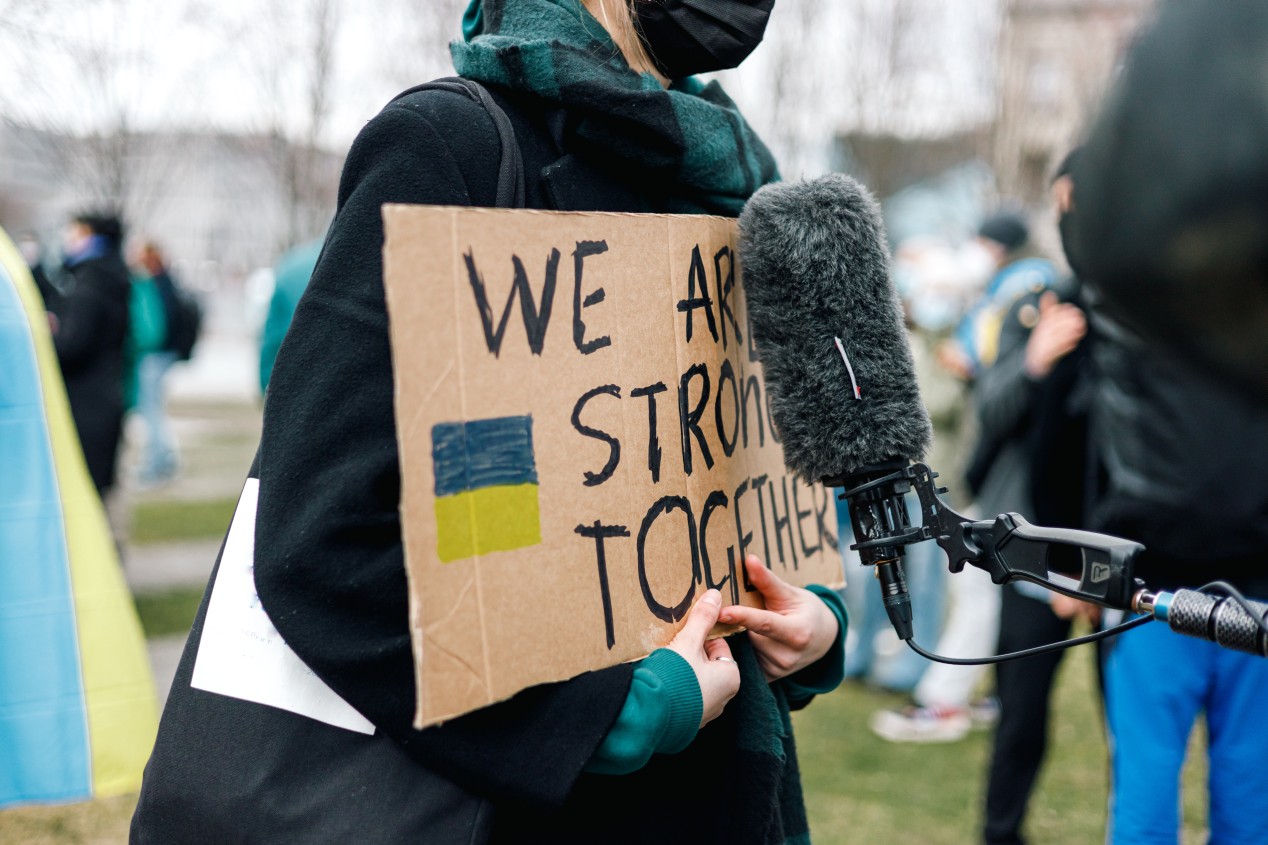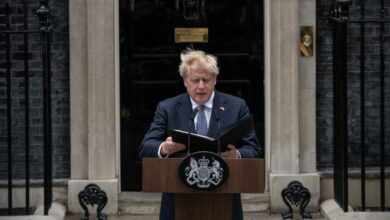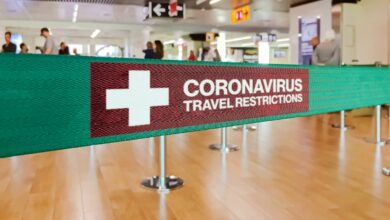One Month Later: Recent News About Ukraine’s Survival Against Russian Invasion

As of Wednesday, March 30, 2022, Russia continues to occupy many areas of Ukraine. The invasion has brought together governments, leaders and peoples around the globe in ways not seen since World War II.
Nearly all the member nations of the North Atlantic Treaty Organization (NATO) and many non-NATO nations have placed strict sanctions against Russia individually and through coordinated efforts in outraged protest. Yet, attacks continue within Ukraine’s borders with no sign in sight of the conflict ending any time soon.
Read More »Why Did Russia Attack Ukraine?
On Thursday, February 24, 2022, President Vladimir Putin of Russia proclaimed the need for a “special military operation” in Ukraine to free people there from the influence of “Neo-Nazis.” He also believed that Ukraine had become too militaristic in recent years and that its government tried to become a part of Europe after previous promises of neutrality. He even implied that the Ukrainian government, including President Volodymyr Zelenskyy, actively targeted and restricted Russian and pro-Russian peoples living in two Ukrainian provinces, Donetsk (DRP) and Luhansk (LPR), that border Russia in an area known as the Donbass region. The ruling leaders in these areas have tried to form breakaway states loyal to Russia for some time and have even declared themselves each a “People’s Republic” in an attempt to show their pro-Russian loyalties.
Yet, many historians and political experts note that Putin seems to want to end his leadership of Russia with a restoration of the former communist Union of Soviet Socialist Republics (USSR or Soviet Union). He seems to have a personal stake as well in restoring Ukraine to Russian control after a previous failed attempt in 2014.
Ukraine gained independence on August 24, 1991 after the dissolution of the USSR. Russia attempted to retake it during the ongoing Russian-Ukrainian War through the Donbass region while annexing the Crimea in 2014. As with this year, he began the conflict in late February. All parties reached a ceasefire agreement in September 2014 but fighting started again by January and hasn’t ceased entirely since even with ceasefire attempts. The main difference this year is that Russia launched what is known as a “full-scale” invasion by bringing troops en masse within Ukraine’s borders.
Did Russian Troops Attack Nuclear Power Plants?
Russia did initiate fighting and eventually took control of the Chernobyl Nuclear Power Plant protection zone site where the No. 4 reactor meltdown took place on April 26, 1986. Russian troops also took control of the southeastern Zaporizhzhia Nuclear Power Station. In both cases, Russian troops used weaponry near the plants and could have caused a new nuclear accident. With Zaporizhzhia, for example, Russian troops used artillery to take over the site and caused a building fire a mere 900 feet from a reactor.
Worse, the actions of troops at the Chernobyl site show that Russia’s military and political leaders care little about the long-term consequences of attacking nuclear power plants. On March 29, people around the world learned that Russian regular troops, mostly young adult, conscripted men, had no idea that they attacked a nuclear power plant. Their leaders told them that they needed to secure “critically important infrastructure.” They also didn’t receive any gear to protect themselves against radioactive particles in the dust everywhere at and miles around the site.
Experts discovered through interviews that these youths drove through the Red Forest, an area where radiation turned trees red, without any type of protection. They kicked up and breathed in enough radioactive dust that every Russian soldier exposed to it is unlikely to have a healthy or long life. Although their actions haven’t caused a regional or global radiation emergency, radiation levels did rise in the area enough to create panic. Experts continue to fear what might happen if Russia continues to ramp up its attacks.
Will Russia Use Chemical or Nuclear Weapons?
President Putin and other Russian officials have repeatedly stated that they have the right to use either type of weaponry as a deterrent or in response to attacks on their country. They’ve even gone so far as to claim that they have the right to use nuclear weapons against another country if that country’s actions, including sanctions, damage their economy or way of life.
New intelligence suggests that Russia already used chemical weapons on peacekeepers seeking to negotiate an end to the conflict. Two Ukrainian negotiators and Russian billionaire and peacekeeper Roman Abramovich, who served as an interpreter and moderator, suffered from a variety of symptoms that imply the use of poison or other chemical weapons during the last peace talks earlier in March. They experienced non-stop, painful tearing and red eyes and the skin on their faces and hands peeled off.
Historically, Russia has used chemical weapons in a variety of settings. A Russian spy attempted to kill opposition leader Alexei Navalny by placing poison along the inner seams of his underwear at his hotel. Unlike the case with Navalny, experts believe Russia used chemicals to make the negotiators only sick enough to scare Ukrainian leaders into giving up or making more concessions.
Why Won’t the Russian People Stop Putin?
Ukrainian’s aren’t the only people attempting to escape Putin’s drive for conquest and power. Besides the many non-Russian interational visitors who have fled Russia, many Russians have also left their homeland. Many more continue to seek ways to leave before their borders are closed off by the ruling government. Those leaving are either youth or working professional dissidents or disenfranchised citizens from educated backgrounds who have the connections or financial means to escape.
They don’t believe that there is any way to stop Putin. Although Russia has had, as noted on Wikipedia, a “democratic, federative, law-based state with a republican form of government” since 1993, the constitution is considered a sham with the government mostly continuing to follow the practices of the former communist USSR. Russia has been accused of human rights violations for decades.
The government cracks down on anyone who protests against the conflict. Many people in Russia fear that if they don’t fall in line, they might face prison sentences or even death since new laws passed in March allow the government to incarcerate individuals, for example, for merely posting online about warfare and Ukraine. The Russian people have known decades of fierce control, torture and deadly force by those in power. Since Putin and his supporters often use spy craft and misinformation campaigns against their own citizens, many Russians don’t even know the truth about Ukraine. They believe Putin’s claims that he’s trying to free Ukrainians and Russian loyalists from Nazis.
Some Russians are also fleeing because they’ve lost their sons to the government’s conscription program and fear the loss of other children or merely don’t want their sons forced to serve in an unwarranted war. They believe they have no choice but to flee. According to several outlets, browser searches within Russia using travel-related keywords and phrases, such as “how to leave Russia,” “emigration,” relocation,” “political asylum” and “travel visa,” increased to a high not seen in more than a decade. Yet, plane tickets are expensive. Many countries now turn back planes that originate in Russia, which means that Russians who want to flee have to find alternative, equally expensive, travel options.
What Might Happen Next?
Russian officials have repeatedly lied about their plans. Before the invasion, they insisted that they increased the presence of troops and military equipment along the Ukrainian border for “training exercises.” They opened evacuation and humanitarian corridors for people to flee the country and supplies to reach those who stayed and then attacked the convoys and relocated Ukrainian adults and children to Russia. They promised not to strike civilian targets and then bombarded heavily populated civilian sites, including maternity wards in hospitals and shelters.
This week, they promised to “drastically reduce” their military presence in certain areas. The mayor of Chernihiv, a northern Ukrainian city, announced on Wednesday that they’re experiencing a “colossal attack” involving air strikes. Russia has used weaponry in Ukraine that it previously agreed with other nations to never use in a conflict, including anti-personnel landmines that more than one hundred nations banned in the 1997 Mine Ban Treaty because the mines often harm civilians by accident.
For these reasons, historians and other experts believe that literally anything might happen with this conflict, including a third World War, if Russian officials increases the lies and attacks in Ukraine or purposely or accidentally attack a nearby NATO nation. On Sunday, fearing chemical, nuclear and further harm to civilians and other nations, President Zelenskyy offered to make concessions involving the Donbass region to stop the violence. The problem is that Russia has suffered unexpected, extreme losses during this conflict. Recent attacks and historical precedent suggest that President Putin might escalate further and cause a world war for no other reason than his need to “win” to offset personal humiliation for not taking control of the entirety of Ukraine by now.





